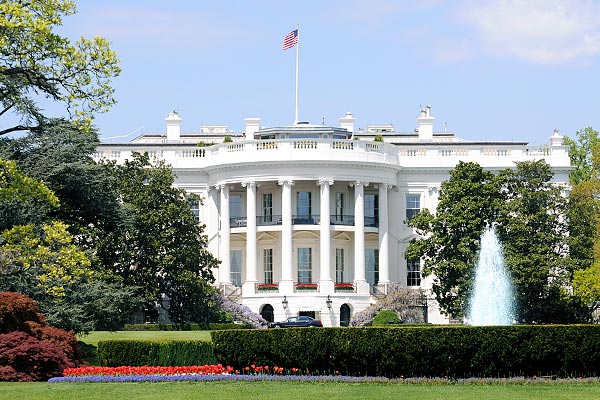
Understanding the U.S. elections
Published: October 16, 2012
With the U.S. presidential debates in full swing and the election just around the corner, the world is watching, wondering which way the political winds will blow.
On Oct. 23, Ambassador David Jacobson will deliver a rare insider’s glimpse at the topic with a free public lecture at U of T’s Munk School of Global Affairs: The U.S. Elections; An Insider’s View from the Outside.
Writer Gavin Au-Yeung asked Assistant Professor Ryan Hurl to give U of T News a quick review of the American electoral system, the major political issues at stake, and why the world can’t get enough of U.S. election coverage.
How does the U.S. political system differ from ours?
The most important difference is the significance of the separation of power. This refers to the fact that the executive in the American system doesn’t depend on the confidence of the legislature to maintain power. In a parliamentary system, parties need to maintain the vote of confidence – if you lose it there’ll be another election. The American system doesn’t work like that; and over time it creates more individualistic forms of party organization, where it’s easier for party members to depart from their party line because the electoral incentives are different.
The primary system is another aspect of American elections Canadians don’t always fully understand. The fact that parties can’t control who their candidates are have a major impact on how elections are conducted and how individuals behave once they’re in office. Essentially, in the American system, candidacy depends on an individual’s own choices. The party cannot control it. The primary elections allow individuals to maintain their places in the party even if they depart from certain political issues.
Healthcare is a major issue in this election; how do the parties differ?
The rising cost of healthcare over the last 50 years is crowding out all other types of government spending and placing immense pressure on the United States. There’s no amount of tax increase that will be enough the pay for health care if the current spending trajectories keep going. So the debate over healthcare policy is about how exactly costs are going to be controlled.
The Democratic Party’s approach required more government regulation and constraints for price control on how healthcare providers are paid. The Republicans aren’t against maintaining the role of government in healthcare, but they doubt the majority of households can be a net importer of tax dollars. Their approach is to control costs by introducing a greater degree of competitiveness and individual choice.
What about the economy?
President Obama’s approach states that we have to have confidence amongst the middle class, and a willingness of people to spend money. If you don’t have sufficient demands, then you’re not going to have economic growth. He is proposing to maintain most of the Bush era tax cuts, but with an increase on the top marginal rates (higher earners will have higher tax rates).
Governor Romney believes tax rates can be reduced by eliminating certain deductions and exemptions – that is, you can reduce rates, without reducing revenue. The problem is that the math doesn’t seem to add up on this. Or at least it doesn’t add up if you assume that you’re not going to touch middle class tax benefits. The Republican Party questions whether the welfare state can continue to provide benefits to the middle class as opposed to simply focusing on the poor.
In a general sense, the Republicans have a difficult message to get across. It would be easier to make the argument perhaps in 1980 when tax rates were much higher on the very wealthy. It’s a very different situation now with a lot more tax breaks going for the middle class.
How much of the population is actually undecided?
A large proportion of the voting public are committed partisans. It’s approximately 80% and it’s relatively evenly divided. The estimates differ; 20% of the population being undecided is probably too high, but given the close levels of competition, even if that number is closer to ten or five percent, events during a course of a campaign can really shape things.
Do the Presidential debates have an impact on undecided voters?
Most political scientist would say that debates in the past don’t seem to have much effect. But one thing to keep in mind is that the people who are going to shift during an election are relatively small in number. And it’s possible that they are the people who can be shaped by debates. Obviously watching a debate is not going to affect someone who is very politically sophisticated, because most people with a high level of political information are partisans. But independent voters can shift depending on things such as debates or other events such as the financial crisis in 2008.
What makes American elections so popular worldwide?
I think what makes American politics particularly interesting, and perhaps something Canadians miss, is that there are significant ideological differences between parties. These are significant differences that don’t quite exist, say in the way of a European context, where divisions aren’t as stark.
The deep ideological differences of economic and cultural issues between the parties help make it more interesting.



